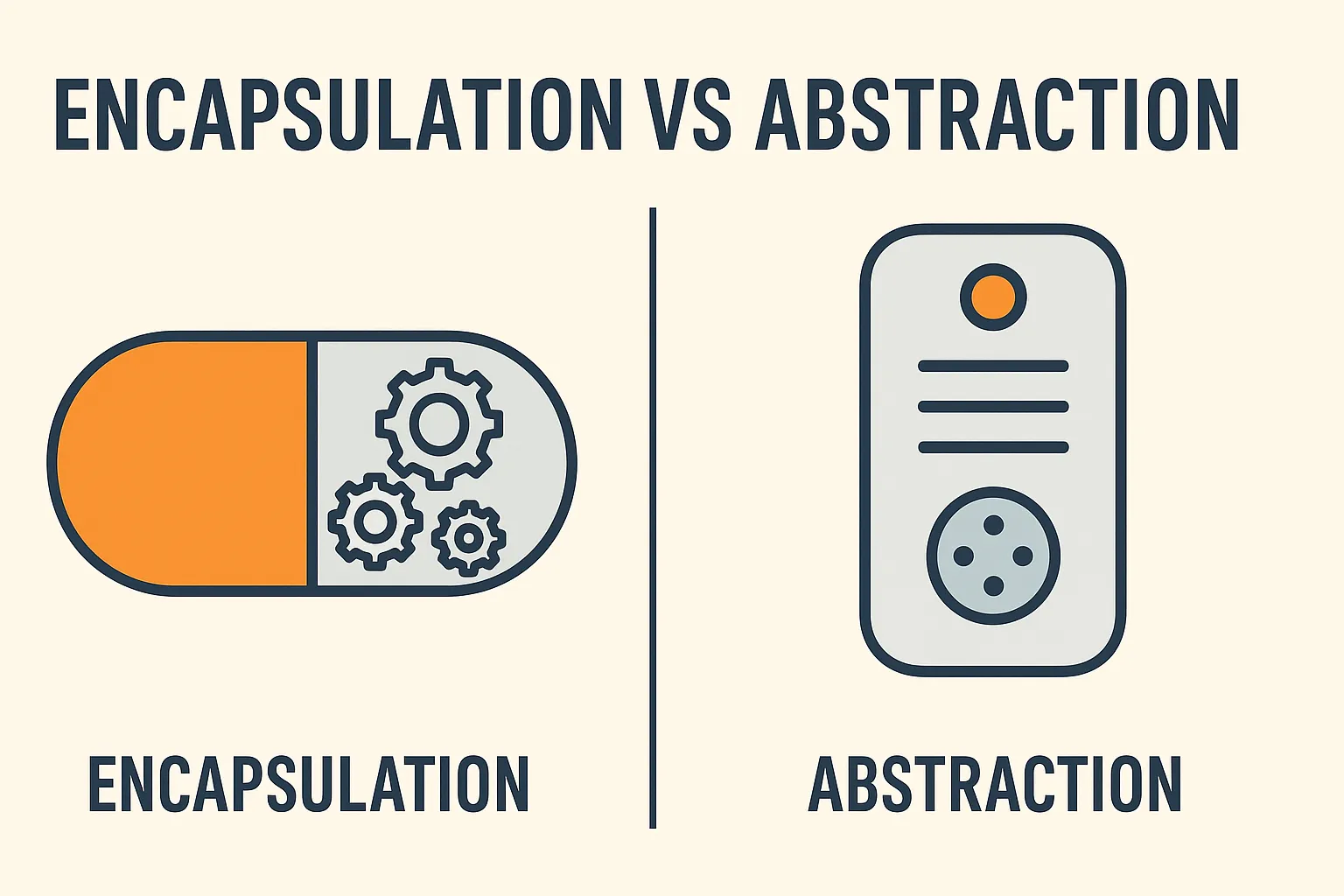Encapsulation and abstraction are two essential principles of object-oriented programming. This blog demystifies them using real-life analogies, code examples, and clear distinctions.
What is Encapsulation?
Encapsulation is the process of hiding the internal state and requiring all interaction to be performed through an object's methods.
public class BankAccount {
private double balance;
public void deposit(double amount) {
if(amount > 0) balance += amount;
}
public double getBalance() {
return balance;
}
}What is Abstraction?
Abstraction hides complexity by exposing only the essential features of an object or system.
public abstract class Vehicle {
abstract void start();
abstract void stop();
}Real-World Analogies
- Encapsulation: A medicine capsule hides bitter contents inside.
- Abstraction: A car steering wheel lets you control the car without understanding engine mechanics.
Code Comparison Example
public abstract class ATM {
public abstract void withdraw(double amount);
public abstract double checkBalance();
}
public class MyATM : ATM {
private double balance = 1000;
public override void withdraw(double amount) {
if(amount <= balance) balance -= amount;
}
public override double checkBalance() {
return balance;
}
}Encapsulation Examples
- Smartphone: Internal hardware/software is hidden via user interface.
- Online Shopping Cart: Private item list manipulated via public methods.
class ShoppingCart:
def __init__(self):
self.__items = []
def add_item(self, item):
self.__items.append(item)
def get_total(self):
return sum(item['price'] for item in self.__items)Abstraction Examples
- Coffee Machine: Press a button for coffee without knowing the internal process.
- Web API: Users access data via endpoints, not knowing backend logic.
interface Vehicle {
void start();
void drive();
void stop();
}Netflix: Combined Example
| Concept | Application |
|---|---|
| Encapsulation | User data and history are hidden and securely handled. |
| Abstraction | User presses play; system handles streaming and buffering. |
Interview Q&A
- Q: Can abstraction exist without encapsulation?
A: Not typically. Encapsulation is foundational to abstraction. - Q: When to use an interface?
A: When you need to define behavior without implementation details.
Summary
- Encapsulation protects internal state via access control.
- Abstraction simplifies usage by exposing only what is essential.
- Together they create clean, secure, and maintainable OOP design.

